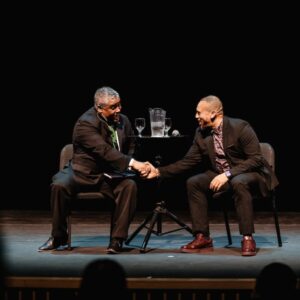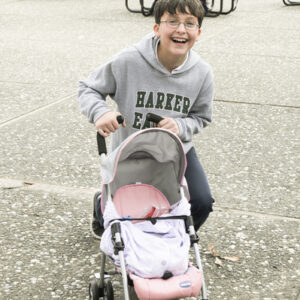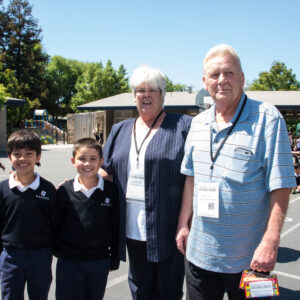Upper school students attended a special assembly on March 5 for a talk on abuse and abuse prevention by Dr. Tanya Krautter, a Los Gatos-based psychologist and adjunct clinical faculty member of the psychiatry department at the Stanford School of Medicine.
Krautter also talked about the recent trend of “sexting,” or the practice of sending sexually explicit photos or videos via cell phones.
She opened her talk with a brief definition of abuse and its variants. “Abuse is actually when there’s one person in a relationship using a pattern of behavior to control the other person,” she said. “Abuse is an intentional act. It’s not accident. It didn’t happen just because.”
Abuse, she said, can be found in many forms, emotional or verbal abuse being the most common. “This can happen from all kinds of people,” she stressed, including friends, family, teachers and coaches. Emotional abuse can also be more than just insults or belittlement. Someone threatening to injure or kill themselves is also exhibiting abusive behavior. “They’re doing something to get you to do something for them, like not breaking up with them, and that’s a control issue,” she said. Such threats are nonetheless taken “very seriously,” and those who make them are urged to seek counseling.
Other kinds of abuse include physical and sexual. “Really important to remember with physical abuse is that it doesn’t necessarily have to be that there’s an actual incident that occurred. It can be the threat of physically abusing you,” she said.
“Many people who are being abused don’t see themselves as victims,” Krautter noted. “And abusers don’t usually see themselves as abusers.”
Krautter spent a large portion of her appearance talking about sexting, which she believes needs to be discussed with high school students far more often. “I think there’s a huge lack of education in our school systems around what the ramifications of sexting really are, “ she said.
Many students are not aware that creating and sending these sexually explicit photos and videos qualifies as production and distribution of child pornography, which has serious legal implications. Krautter related the story of one student who is currently awaiting sentencing in juvenile hall for sending hundreds of sexually explicit videos of minors.
Toward the end of the talk, Krautter said the biggest reason abuse occurs is because it works. “Unless victims know how to stop the abuse – walk away, assert themselves, let the person know, ‘this is not OK with me’ – then the abuse will continue to occur,” she said.
Following her talk, Krautter took some time to answer questions from students. She answered a question from one student about how laws related to abuse are changing, noting that people are now able to report instances of verbal abuse to Child Protective Services. Responding to a question about how young people should respond to partners threatening to harm or kill themselves, Krautter said the best course of action is to remind the person that they do not want the individual to hurt themselves, and to help them find someone they can talk to.











